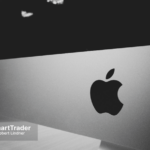📆 Monday, March 31
► European stocks fell sharply on Wednesday as investors braced for U.S. President Donald Trump’s sweeping global trade tariffs, set to be unveiled on April 2. The Stoxx 600 fell by 1.5%, led by losses in autos, banks, and mining stocks, as Trump’s tariff threats weighed heavily on market sentiment. Major automakers including Volkswagen, Mercedes-Benz, and Renault (etc.) all traded lower amid mounting fears of U.S. import levies. Bond yields across the region declined, with Germany’s 10-year yield slipping to a four-week low of 2.7%. Increased bets on ECB rate cuts now point to a total of 65 basis points of easing by the end of 2025. France’s Marine Le Pen barred from running for public office for 5 years after embezzlement conviction.
► U.S. markets remain under pressure with S&P 500 futures down 0.7% as Trump’s tariff threats continue to rattle investor sentiment. This would mark the S&P 500’s worst quarter since 2022, having lost $5 trillion in market value since the February 19 record high. Concerns over Trump’s broad tariff approach have unsettled investors, as the upcoming announcement is expected to target all countries. Last week’s economic data showed stronger-than-expected GDP growth of 2.4% for Q4 2024. However, inflation concerns persist, with the Core PCE Price Index rising 0.4% month-over-month, exceeding estimates. While GDP growth remained resilient there are also signs of slowing consumer spending and poor consumer sentiment. Treasury yields fell, with the U.S. 10-year yield dropping 6 basis points to 4.2%. Goldman Sachs lowered its U.S. and Eurozone GDP forecasts, predicting three rate cuts from both the Fed and ECB this year. However, much negativity is priced in with stocks showing signs of stabilizing. Most investment banks remain optimistic, especially as many of them just recommended to buy the dip in the previous week (when stocks, however, fell sharply).
► Asian markets closed broadly lower, mirroring the negative sentiment from Europe and the U.S. Japan’s Nikkei 225 crashed 4.03%, hitting its lowest level in over six months as investors digested mixed economic data. The JPY strengthened by 0.7% against the USD, reflecting heightened risk aversion. The Hang Seng Tech Index dropped 1.31%, continuing its correction amid profit-taking in stocks like Xiaomi, JD.com, Alibaba, and Tencent. Meanwhile, the Shanghai Composite slipped 0.46%, despite positive PMI data showing China’s factory activity expanding at its fastest pace in a year. Positive indicators were overshadowed by mounting concerns over Trump’s looming tariffs. Talks of a potential free trade pact between South Korea, China, and Japan failed to offset broader trade concerns, as investors remained cautious ahead of Trump’s upcoming announcement.
Subscribe to see more




